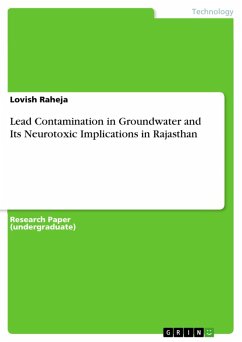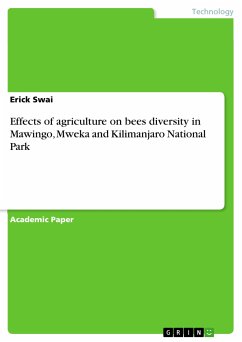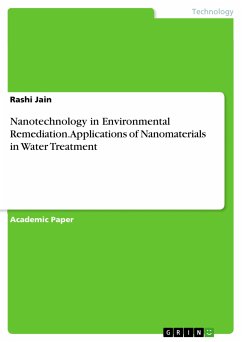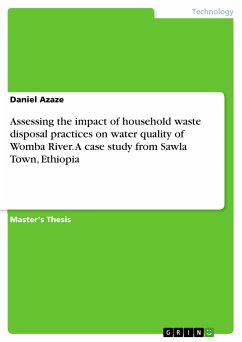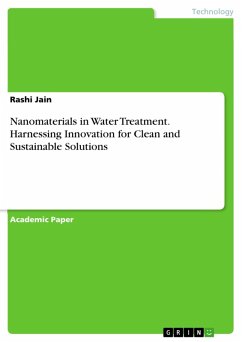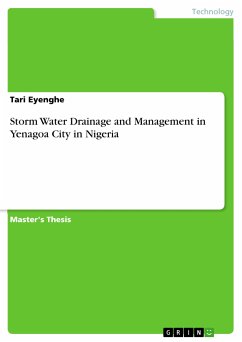Research Paper (undergraduate) from the year 2022 in the subject Environmental Sciences, grade: A, , course: Research Methodology and Thesis Writing, language: English, abstract: Groundwater accounts for about 97% of the world's fresh water, serving as a crucial resource for various human activities such as urban water supply, agriculture, and industry. However, the growing demand for groundwater extraction, driven by advancements in technology and population growth, has led to increased stress on these resources. Consequently, this heightened exploitation raises the risk of groundwater contamination, particularly from toxic metals like lead (Pb). Lead contamination in groundwater poses significant health risks, especially for vulnerable groups like children. Even at low concentrations, lead, commonly found in various industrial processes, can have severe adverse effects on human health. Children, in particular, are susceptible to lead's neurotoxic effects, which can lead to long-term cognitive impairments and developmental disorders. Rajasthan heavily relies on groundwater for irrigation and drinking water needs, making it particularly susceptible to lead contamination. Despite numerous studies highlighting heavy metal contamination in Rajasthan's groundwater, a comprehensive overview specifically focusing on lead contamination and its neurotoxic effects is lacking. Therefore, this study aims to fill this gap by systematically examining the state of lead contamination in Rajasthan's groundwater and its implications for public health. The objectives of this study are to identify the main sources of lead contamination in Rajasthan's environment, elucidate the mechanisms and pathways through which lead contaminates groundwater, assess the current status of lead contamination in groundwater, evaluate its potential exposure to the general population, and examine the neurotoxic implications of such exposure. Additionally, the study aims to provide recommendations for policymakers to mitigate population exposure and associated health risks. By addressing these research questions, this study seeks to provide valuable insights into the extent of lead contamination in Rajasthan's groundwater and its broader public health implications. The findings and recommendations generated from this study have the potential to inform evidence-based policy interventions aimed at protecting public health and mitigating the adverse effects of lead contamination on vulnerable populations.
Dieser Download kann aus rechtlichen Gründen nur mit Rechnungsadresse in A, B, BG, CY, CZ, D, DK, EW, E, FIN, F, GR, HR, H, IRL, I, LT, L, LR, M, NL, PL, P, R, S, SLO, SK ausgeliefert werden.

